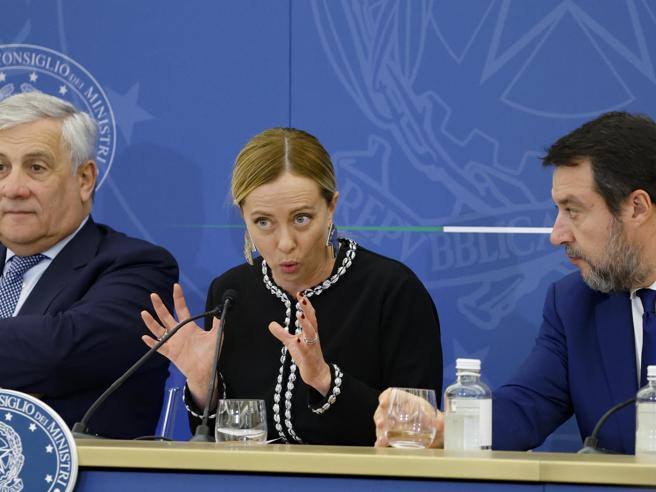The ministers Casellati and Ciriani, along with all the center-right Senate group leaders, have reached a draft agreement, but it will need the approval of the leaders. It is likely, but not certain, on every point, as there are still doubts. Now the reform goes to the leaders’ table.
The draft comes after tensions between FdI and Lega. The power of revocation of ministers comes in, goodbye to the blank period. A failed vote on a provision is not enough for the president to fall, only a specific motion is.
Premiership, there is an agreement on the “second” premier and the blank period. FdI had wanted to exclude this possibility outright: if the elected premier fails, there is an automatic return to the vote, following the principle of simul stabunt, simul cadent. However, under pressure from Lega, a sort of compromise was reached.
The elected premier can be removed by their majority, but only with a specific, motivated motion. A negative vote on a provision that has been given a vote of confidence (sometimes used to speed up the process of laws) is not enough. The elected head of government, removed by a specific motion, can take a week to reflect and then, as provided for in the Constitution, ask the head of state to dissolve the Chambers.
However, the premier could also resign, in which case the “second” premier, identified within the majority, could take over. As Minister Calderoli says, “it’s not enough for a law to be rejected to remove the premier, a decision of the majority is required.” This was a fiercely debated issue between Ciriani of FdI and the head of the Lega group Romeo, but Lega stood its ground.
The text does not explicitly state this, but it can be inferred from the articles. It is also inferred that the potential replacement premier in case of impediment or resignation, not being “elected,” does not have the power of dissolution. However, it is not clear who would decide what to do in the event of a vote of no confidence against them.
Other new features compared to the original text are: the premier has the power to propose to the head of state the appointment and revocation of ministers, and the limit of mandates is two (but becomes three if in the previous two they governed for a period less than 7 years and 6 months). Lastly, there is no more blank period for the head of state, who in the event of a motion of no confidence by the premier must dissolve the Chambers until the end of their mandate. The Constitution indicates a majority prize for the voting system, but without defining the details.
While waiting for the leaders to give the green light (the deadline for amendments is Monday), the opposition is already up in arms: “They can make changes as they see fit for their internal deals, but if the direct election of the premier remains, they will receive from the Democratic Party the strongest and most resolute opposition we can muster,” promises Elly Schlein. The text is dedicated to subscribers of Corriere della Sera and is delivered twice a week at 12 pm. *Corriere della Sera is also on WhatsApp.
Just click here to subscribe to the channel and stay updated. * February 1, 2024 (last modified on February 1, 2024 | 21:11) © ALL RIGHTS RESERVED
